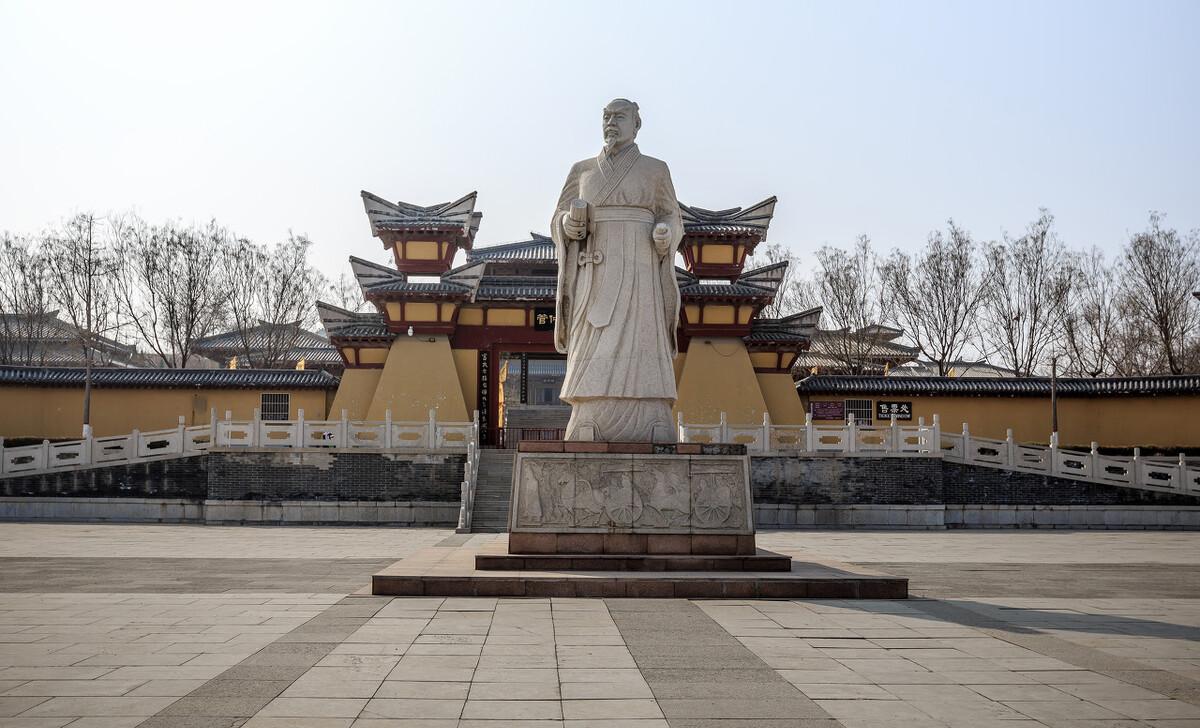
Guan Zhong
In the wars of the past, through reasonable positioning, a good slogan, is better than an army.
The story of Zunwang Zhiyi first appeared in the Spring and Autumn Period of the Eastern Zhou Dynasty of China, and the term "Zunwang Zhiyi" was first mentioned in the Spring and Autumn Ram Biography. The literal meaning is to maintain the rule of the king and reject foreign aggression. The protagonist who executed this zun wang in the Spring and Autumn period was the first overlord of the State of Qi, the Duke of Qi Heng.
The person who shouted this slogan was Qi Huangong, what was his ultimate purpose? It's battle for supremacy!
Some people may ask, they are all fighting for hegemony, why not seek the world? At that time, although the State of Qi was strong, it was far from being strong enough to be the only one. In terms of population and GDP, the State of Qi may have accounted for only about one-tenth of the nominal jurisdiction of the Eastern Zhou Dynasty at that time.
In this case, it is naturally not easy to seek the world, even the struggle for hegemony, can not be blatant, must have a good name. Only in this way can we respond to every call, let other large and small princely states revolve around themselves, and strengthen the country of Qi while also doing a good job as the police of the world.
Externally, the Eastern Zhou, like the Western Zhou, was still facing the invasion of nomads. Internally, the Zhou royal family is getting weaker and weaker, not to mention the large princely states, even the small princely states sometimes go to bully the Zhou royal family.
Why didn't the State of Qi bully the Zhou royal family? This question can also be placed on cao Cao's strategy at the end of the Eastern Han Dynasty.
"Honor the Son of Heaven to order the princes."
At least, the Son of Heaven is always nominally the Son of Heaven, no matter how much you look down on it in your heart and how much you want to replace it. But when the power is not strong enough, the war is launched in the name of defending the Son of Heaven, and the princes on the surface do not dare to oppose it.
This is the common point of need for both internal and external.
This strategic positioning that Guan Zhong did for Duke Huan of Qi was even much smarter than Cao Cao hundreds of years later. As a result, Qi Huangong became the first overlord in the Spring and Autumn Period.
In 655 BC, King Hui of Zhou had a move to depose the crown prince, but was informed by the Duke of Qi Heng. Therefore, the Duke of Qi Heng led the princes to make an alliance with King Hui of Zhou at the beginning, and the Duke of Qi Heng established the orthodox status of the prince of the Zhou Dynasty with the intention of the princes of the world.
The following year, considering that when the alliance was first stopped, Zheng Guo did not come out of the meeting, and Qi Henggong led a coalition army to attack Zheng Guo. Later, King Xiang of Zhou ascended the throne, and dukes of Qi Heng, together with the princes, allied with the emissaries of King Xiang of Zhou to recognize the throne of King Xiang of Zhou. In 651 BC, in the alliance between the Duke of Qi Heng in Kuiqiu and the princes of the State of Lu, the State of Song, and the State of Cao, Zaikong was witnessed on behalf of the King of Zhou and the Duke of Qi Heng as the chief of the princes, and thus a hegemony appeared in the Spring and Autumn Period.
As the prince of the Spring and Autumn Period, Duke Qi Heng had the responsibility of safeguarding Chinese civilization. When Shanrong sent troops to attack the State of Yan, the State of Yan could not resist, and the monarch of the State of Yan asked the Duke of Qi Heng for help. So Qi Henggong sent troops to attack Shanrong, until he reached Guzhu and expelled Shanrong from the border of the Yan state. When Shanrong captured the country of punishment and destroyed the capital of the country of punishment, Qi Henggong led an army to save the country. The Qi army once again successfully repelled Shanrong and helped the State of Punishment establish a new capital at Yiyi. In addition, Duke Heng of Qi also led a coalition army to cut down Chu and forced the State of Chu to pay tribute to the Zhou royal family in the Central Plains, and the State of Chu also joined the alliance of the State of Qi, honoring the State of Qi as the chief of the princes.
On the one hand, the honorable king of Qi Henggong succeeded in preventing the invasion of foreign hostile Chinese civilization, on the other hand, it also made the hegemony of the State of Qi more reasonable and legitimate, and many princes in later generations followed the example of Qi Henggong.
Of course, the reason why this slogan was successful was that in addition to the strategic "force and false benevolence", this was also the desire of the people in the world at that time.